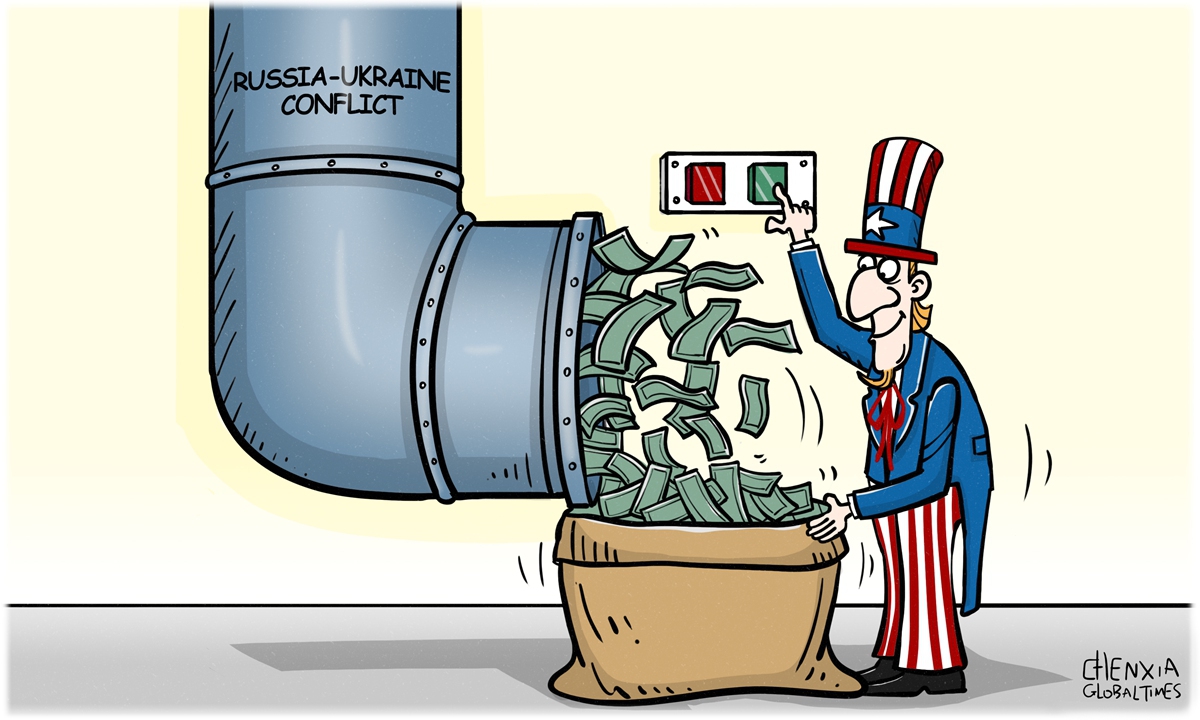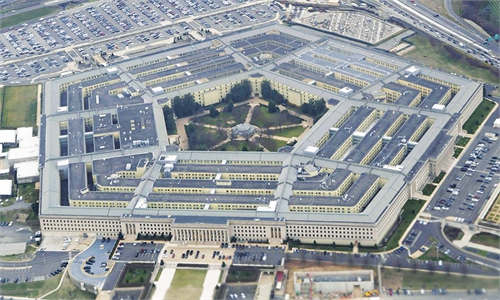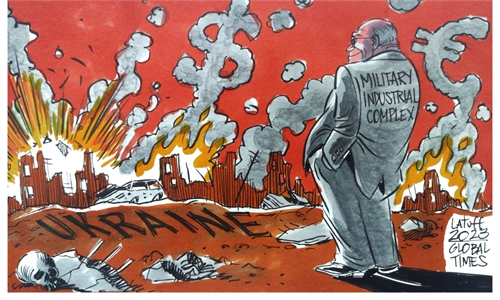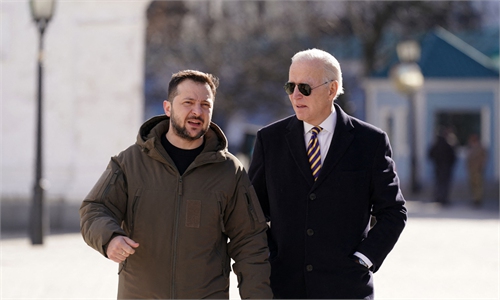
Illustration: Chen Xia/GT
With the Russia-Ukraine conflict set to enter the second year, Western calls for resolve to fight a long war in Ukraine seem to have left the world's emerging-markets increasingly frustrated about the future outlook as their needs for a peaceful development environment have been largely ignored.A Financial Times report, entitled "Western pleas over Ukraine fail to sway African and South American leaders," indicated on Monday that Western leaders at the Munich Security Conference struggled to convince rest of world to support their stance over the Russia-Ukraine conflict.
For instance, Brazilian foreign minister Mauro Vieira said that the conflict was a "very sad situation" and that "It's been one year now. We have to try to build the possibility of a solution. We cannot keep talking only of war."
The frustration among leaders from emerging-market economies about the Russia-Ukraine conflict is apparently growing as the impact of the conflict on the global economy is still deepening, with no signs of easing.
Back in March 2022 when the Russia-Ukraine conflict just broke out, expert projections expected the conflict to cost the 2022 global economy at least $400 billion, reducing global growth by more than 1 percent and propping up inflation by 2.5 percent. But one year on, the global economy has been hit much harder than those numbers suggested.
In Europe alone, countries have spent more than $800 billion to support energy consumers and customers, according to Bruegel, an economic policy think tank. According to German media reports, Marcel Fratzscher, president of the German Institute for Economic Research, said that Germany has lost 100 billion euros ($106.7 billion), equivalent to 2.5 percent of Germany's economic output in 2022, due to the Russia-Ukraine conflict and the increase in energy bills.
Fortunately, Europe has experienced a mild winter so far, otherwise, the region's energy bills would have been even more eyewatering. But no one forced European economies to expose themselves to unprecedented energy shortage and to buy high-priced gas supplies from the far away US. They should have seen that coming when choosing to fan the flames of the Ukrainian crisis and to impose double-edged sanctions against Russia.
Since the West doesn't even care about their own losses, it is delusional to expect the West to realize that the developing countries, which are neither perpetrators nor participants in the conflict, have been suffering what they don't deserve. When it comes to inflation, debt, higher energy prices and food security, developing countries, especially those poorer ones, are far more vulnerable than the West. For instance, the combination of high inflation, US tightening monetary policy, and geopolitical uncertainties has further increased debt risks in developing economies over the past year.
Developing countries themselves are facing too many economic and social problems that need to be addressed through development and coordination with other countries, especially the West. But now that the Western world is so committed to crushing Russia that it doesn't appear to have extra energy and financial resources to take care of concerns among the developing economies. It means progress could stall because Western countries fail to play their due role when it comes to development problems that require global collaboration, such as climate change.
At present, emerging-market economies account for 50 percent of global GDP and 66 percent of global GDP growth over the past 10 years. While growth in emerging markets is forecast to slow due to the global economic slowdown, overall it still outpaces the expansion in developed economies.
If the development needs of emerging-market economies cannot be met in the long term, their growth will surely be affected, which will undoubtedly plunge the global economy even further into protracted uncertainty. And Western economies will only be worse off in such scenario.
In this sense, it is crucial to give enough attention to the solutions that lead to peace, so as to give the whole developing world more space and opportunities for economic development, enhancing confidence in the global economy.



